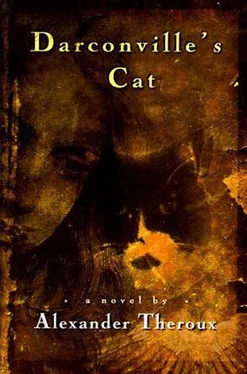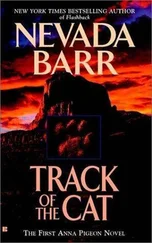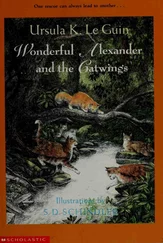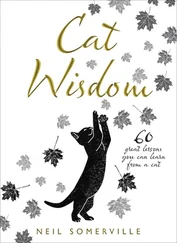The Night of Power is better than a thousand months.
— JACOB BOEHME
THE WOODS in Fawx’s Mt. were wet and cold. Darconville stirred through the leaves, cut through the water-rat-smelling underbrush, and quickly crossed down a dark path, shadowed by funeral pines, that ran parallel to Isabel’s street where in a hidden spot he parked the car — stolen at the Charlottesville airport — which he’d spotted from the rainy booth while making a certain telephone call: Hypsipyle Poore, breathing low through the receiver, confided that she had managed to sleep with van der Slang, twice, and with words like that of a sweet-natured child drawn into a game it was ready to play without full understanding reported the details to Darconville which he recorded in a little notebook with one hand while the other opened and shut on the instrument as if it were galvanized. He did not pity himself. He did not hate himself. He just endured himself, waiting until darkness fell.
It was windy. The moon was like a golp sitting in the rainy sky, disappearing now and again in the fog, lifting the weight of darkness from the earth while turning the world, the woods, into a place of phantoms and shadows, and finally the pale sickly gleam over the Blue Ridge mountains threw a last ambivalent shadow down the valley to beckon the night he’d been waiting almost all day for, leaving the entire area under the full cloven hoof of darkness. The whipping, but intermittent, rain had chilled Darconville to the flesh, congesting his lungs to the point of actual pain. It didn’t matter, he thought, as he ducked, thrashing, through limbs and branches. Hill and valley scarcely seemed to be step and landing for him; rooted trees seemed but as sticks he could smite down. There were only his footsteps— fiends in the fog coming after him — each one nulling the last, as fate overtakes free will, steps past chance toward destiny, and halts at predetermination. He would fix her forever to the very spot on which when last he’d seen her she stood — then bang ! It would be her last night on earth.
As had been the case all day, hiding in the car, he kept turning over and over Hypsipyle’s description of Gilbert van der Slang, which confirmed almost everything — it was astounding with what accuracy — he’d conjectured: pinched nose; scrawny neck; wiry hair; a nasal, airy voice; a motionless cast of features, with rabbity teeth showing when he smiled; and the habit, when making a point, of jerking his mouth in an ugly way, a twitch on the right side as if upon whatever pronouncement to be adding something of force or authority to it. It was, she said, like making love to a broomstick.
There was nobody yet home in the little house where Isabel was living: the lights were out, the driveway empty. Darconville swatted through the brush, rank with patches of scabious knapweed and the mold of wet decaying leaves, crouching along toward the sound of water, and there by a familiar stream, a thing that could barely name itself, he chose a spot. It was a covert in a folding bracket of bushes, set back and out of the way, yet with a direct view through the trees, bare except for the last foliar bundles of late fall, to the conventional little house some hundred odd yards away. A scared bird whistled away. He took out his pistol — and waited, the sound of the ghastly susurration in his chest the only evidence of life in those woods.
It was absurd for the necessity of it: thrilled with the evil of where he was, Darconville could nevertheless exclude himself — out of the inexorability of fortune — from a matter one part of him could not conceive, not acknowledge, not treat as a thing of possibility, never mind reason, and to try to behold himself dwelling in the midst of it, to imagine this was he, became impossible. An assassin? With leaky shoes? In a mottled wood by night? Yet there in fact he was, the claustrophile-with-a-vengeance his students so briefly knew — never ultimate, never emphatic, never settled, never in sight. His reclusive disposition was at the extreme. The night brought the forest closer; it was no longer the place where, as lovers, they’d walked a million years ago; it was in the interior chilliness of the darkness, and the moving trees whose every action, travestied by moonlight, almost made him fire proved every time he looked up to be only the wind and the rain whispering in repetitious echo of her, “ You’re mad as a hatter! You’re mad as a hatter !”
An hour passed, and another. The covert grew darker about him, and pulse by pulse Darconville felt time grow weaker in his veins. He kept still, not stirring, concentrating on the destruction of her memory and trying to block out all motive, sense, intention, and consequence— for thought is fatal to action — sometimes seeing no ground beneath him and then noticing, suddenly, the serrations in every leaf and every blade of grass. And then whence the smell of sulphur, of burning and smoke, rising out of fissures in the earth? A subterranean fire. It had been burning, like dream into fact, for four years. He blew on his hands. He felt cramped. Where was she? Where was she?
He listened. It was getting late; there was still no sign of her: perhaps, he thought, she might never appear. Then he would have to stalk her — who knew? — even to Zutphen Farm and blast her away through a window. Overhead a few dry and shrunken leaves rustled, having points like stars and rising and falling delicately as fingers playing sad music. Along the bed of the slanting ground, all between the stools of wood, there were heaps of dead brown leaves, and sheltered mats of lichen, and drifts of spotted stick gone rotten, and tufts of rushes here and there, full of fray and feathering. Darconville stumbled about, shifting in his wet coat, into several positions until it all became hopeless: the rain came thundering down now in sheets. He was freezing and, unable to stifle the coughing from his aching lungs, leapt away with a train of curses sufficient to poison the light of the moon. The volume of rain beat eastward into the trees, and shuddering — the ice-cold water rippling down his collar and into the bandages — he squelched through the bracken and brakes and thickets of undergrowth, where the moss held the falling rain like sponges. He took refuge in disgust under a huge pine by which, still, the little stream ran like diverted hope and listened to the water brawling darkly along banks napped with that soaked moss, though he was still able to see the house.
It was then that it happened. Darconville, while he squatted there, hunched and inert, his stiff fingers folded around the pistol, was suddenly alert to something in the woods, undeniably like something moving. Turning, he felt his heart shut like a stopper; he froze — and, instantly, it was as if he had come there only to understand what he must immediately come to know he could never learn to forget, for in that moment foreordained his gaze had fallen upon that simple tree, standing alone across the water, upon the midrib of which in thin serifs had long ago been carved a single word: Remember .
He stood before it in the pouring rain.
What hand made it? Whose carved? The very hand, he saw without elaborate calculation, that would now mock memory by murder. It was quietly, an overpowering accumulation, in the midst of that storm — with the feeling of what was impending swiftly opening to him in violent contrast the intensity of past consciousness and the idea that it might cease forever — that Darconville suddenly realized that the source of all error in life was failure of memory! A recept, made of many precepts, exploded into concept — and the past, formerly thought adversary to the future, spoke to him. Remember! Remember! Remember the king’s words in the old story: which arrow flies forever? The arrow that has found its mark! All forgetfulness, he understood, almost on the edge of exultation, was in itself immoral, for the permanence with which experiences stay with a man is proportional to the significance which they had for him: memory must be preserved from time! A thing has the more value, it came to him, the less it is a function of time, and the effort of men to probe the past? Why, it was nothing less than an exertion toward immortality, for the consciousness and vision of the past but pointed to a desire to be conscious in the future, didn’t it? And if, he suddenly reasoned, we do not free what we have known from time by memory, can we have any knowledge of remembrance any more than we can have one jot more of time? Memory was eclogue! “What have I got left?” asked Time. “Your genius,” answered Eternity.
Читать дальше












